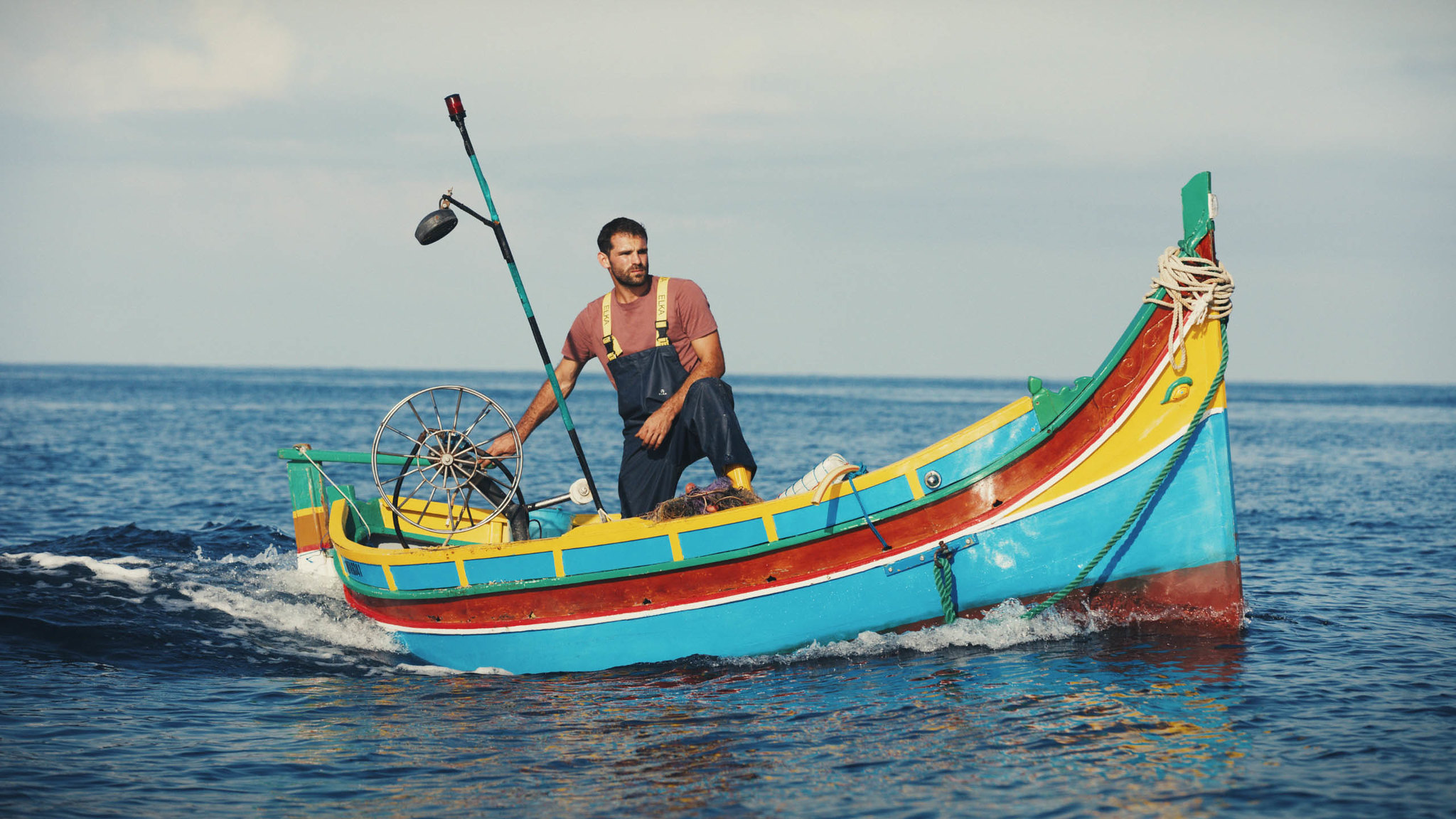Filmed and set in Malta, director Alex Camilleri’s debut Luzzu follows Jesmark, a fisherman and new father, in his attempt to find the money and resources to give his young family a good life. Set up by a simple premise, and a hyperrealist approach, the film pits dreams against pragmatism, as Jesmark struggles to abandon his generational pull towards hitting the open sea in his tiny, hand-painted boat.
As most audiences will find, we’re even less aware of Maltese life and this culture of fishing than we think. Camilleri, a Maltese-American, has spent the last decade working as an editor and assistant editor on a number of films, collaborating often with Iranian-American director Ramin Bahrani. Camilleri takes a naturalist path in his first film, edging on documentary fiction, casting a leading man in Jesmark Scicluna with a hardened face and an unwillingness to smile.
Quickly, Jesmark realizes he cannot support his family and an issue with his baby’s growth with the salary of a fisherman––especially with his old luzzu being broken. With little hesitation, he enters the world of black market fisheries, and the buying and selling of off-season, illegal fish. It’s a moral dilemma, but not one that affects his relationships, outside of his distance from his father’s friend and his mentor, David. And in Jesmark’s case, people are helping him as he scrambles for cash. Those in both the legal and illegal trades give him opportunities to succeed, though it requires moral and physical sacrifice.
Luzzu thrives when it buys into its specificity, giving a glimpse of Maltese life, and the constant, daily struggles of fishermen bought out by the EU. As a man that comes from modesty, Jesmark’s inability to take the help that’s offered to him becomes a recurring theme, and a reason for his wife’s increasing separation. The scenes of the fishermen chatting about their work grow into the most memorable of the film, even when Jesmark finds out the reason for his new acquaintance turning to the darker side of the fishing trade. Luzzu focuses almost entirely on these Maltese men––not the women working equally as hard, giving up the same amount of hopes and dreams–– and each makes everyday decisions to service his immediate family. The overwhelming majority of these decisions negatively impact their chance of continuing to exist in a boat on the water.
Camilleri drives home the point that life has not been easy, or kind, to Jesmark, or to many of these Maltese families. Often, dreams don’t have the sustained success needed for comfort, and for some, these dreams must be shelved for as little as 7,000 euros. Malta, the world’s 10th smallest country in area, serves as an almost-quaint setting for Luzzu, surviving in the shadow of powers beyond its control.
A simple, yet beautiful film due to this sense of place, Luzzu highlights a story that’s rooted in tradition and particularity. At times, rushed in its quest to find a central conflict, the film finds Camilleri crafting a coarse story, one void of laughs, jokes, or levity. The performances find footing in their nativism, as these people seemingly morph into these characters without much of a fuss. The film lacks warmth, though, and by the end, your care for these characters hasn’t increased with meaning or time. You peek into their story, and then move forward with your own life, a little more knowledgeable of Malta, of fishing, and of the pangs associated with both.
Luzzu premiered at the Sundance Film Festival.

